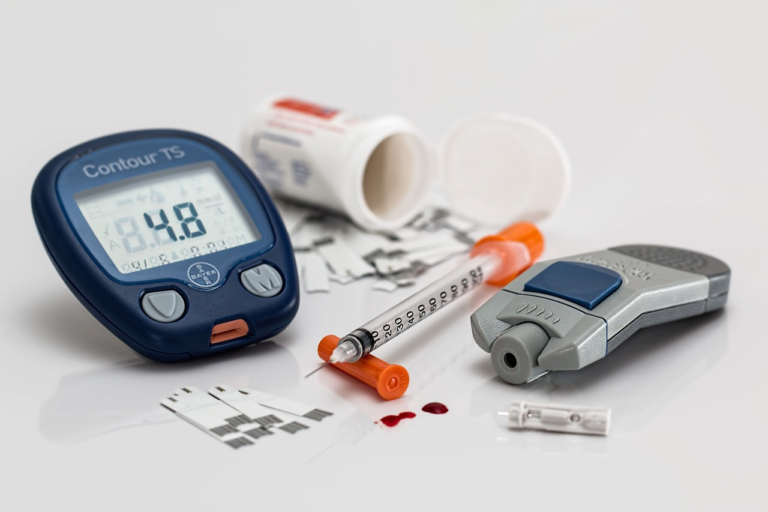Exploring the Link Between Diabetes and Sleep Disorders – Tips for Better Rest
#ez-toc-container {
background: #f9f9f9;
border: 1px solid #aaa;
border-radius: 4px;
-webkit-box-shadow: 0 1px 1px rgba(0, 0, 0, .05);
box-shadow: 0 1px 1px rgba(0, 0, 0, .05);
display: table;
margin-bottom: 1em;
padding: 10px 20px 10px 10px;
position: relative;
width: auto;
}
.ez-toc-container-direction {
direction: ltr;
}
.ez-toc-list-level-1 a{
font-weight:bold;
}
Table of Contents
1. Introduction to Diabetes and Sleep Disorders
In recent years, the global health landscape has been increasingly dominated by two pervasive health issues: diabetes and sleep disorders. These conditions not only affect individual well-being but also impose significant public health challenges. Understanding these conditions, their prevalence, and their interconnections is essential for crafting effective health interventions.
Overview of Diabetes: Types and Prevalence
Diabetes is a chronic health condition that affects how your body turns food into energy. The primary issue in diabetes is related to insulin, a hormone made by the pancreas to help your body use sugar (glucose) from carbohydrates in the food that you eat for energy or to store glucose for future use. There are several types of diabetes, each with distinct characteristics:
- Type 1 Diabetes: This type is an autoimmune condition where the body attacks the insulin-producing cells in the pancreas. It typically develops in childhood or adolescence but can occur in adults. Treatment involves lifelong insulin therapy.
- Type 2 Diabetes: The most common type, where the body becomes resistant to insulin or doesn’t make enough insulin. Lifestyle factors such as diet, physical activity, and weight significantly contribute to its development. Management includes lifestyle changes, oral medications, and sometimes insulin.
- Gestational Diabetes: This type occurs during pregnancy and typically resolves after childbirth. However, it increases the risk of developing type 2 diabetes later in life for both mother and child.
The prevalence of diabetes has been rising globally. According to the International Diabetes Federation, approximately 537 million adults were living with diabetes in 2021, a number that is expected to increase substantially in the coming decades due to factors like aging populations and lifestyle shifts.
Defining Sleep Disorders: Common Types and Symptoms
Sleep disorders encompass a range of problems related to sleeping, including difficulty falling asleep, staying asleep, excessive sleep, or abnormal behaviors associated with sleep. The most common sleep disorders include:
- Insomnia: Characterized by difficulty falling or staying asleep, insomnia is one of the most prevalent sleep disorders affecting emotional and physical health.
- Sleep Apnea: A severe disorder in which a person’s breathing repeatedly stops and starts during sleep, leading to disrupted sleep and various health complications.
- Restless Legs Syndrome (RLS): This disorder causes an uncontrollable urge to move the legs, usually due to uncomfortable sensations, impacting the ability to sleep well.
- Narcolepsy: A neurological disorder that affects the control of sleep and wakefulness, characterized by excessive daytime sleepiness, sleep paralysis, and in some cases, hallucinations.
The symptoms of sleep disorders vary but commonly include persistent sleepiness during the day, difficulty falling asleep, irregular sleep patterns, and frequent awakenings during the night.
The Importance of Understanding Their Connection
The linkage between diabetes and sleep disorders is of paramount importance. Research indicates that there is a bidirectional relationship between these two health issues. Poor sleep quality and sleep disorders can affect insulin sensitivity, glucose metabolism, and appetite regulation, thus exacerbating diabetes-related complications. Conversely, uncontrolled diabetes can lead to night sweats, frequent urination, and neuropathic pain, all of which disturb sleep.
Recognizing and addressing the connection between diabetes and sleep disorders can lead to more comprehensive treatment approaches. This not only improves the quality of life for affected individuals but also mitigates overall health risks and decreases the burden on healthcare systems.
In summary, a deeper understanding and awareness of diabetes and sleep disorders, along with their interconnected nature, are crucial. By integrating better management strategies and fostering awareness, both individuals and healthcare providers can work towards improving outcomes for those affected by these pervasive health challenges.

2. The Science Behind Diabetes and Sleep Disorders
Introduction to Diabetes and Sleep Disorders
Diabetes is a chronic metabolic condition characterized by high blood sugar levels. It exists in two primary forms, Type 1 and Type 2, along with gestational diabetes. Those affected often grapple with various health challenges, with sleep disorders becoming increasingly significant. Understanding the intricate relationship between diabetes and sleep is crucial for effective management and improving quality of life for diabetics. This section delves into the scientific aspects of how diabetes influences sleep and highlights common sleep disorders in diabetics.
How Diabetes Affects Sleep: Blood Sugar Fluctuations and Insulin Resistance
The interplay between diabetes and sleep is a complex one. Fluctuations in blood sugar levels can severely impair sleep quality. Here’s how:
- Blood Sugar Levels: Hyperglycemia and hypoglycemia can both disrupt sleep. High blood sugar can cause frequent urination, thereby disturbing sleep, while low blood sugar can trigger nightmares and night sweats.
- Insulin Resistance: The body’s resistance to insulin is central to Type 2 diabetes. This condition can disrupt the normal sleep cycle, leading to a reduction in slow-wave sleep—essential for physical health and recovery.
These disruptions can lead to a vicious cycle, where poor sleep exacerbates the body’s inability to regulate blood sugar, further aggravating diabetic symptoms.
Common Sleep Disorders Among Diabetics
Diabetes is known to increase the risk of multiple sleep disorders. Here’s a closer look at the most prevalent ones:
- Sleep Apnea: This disorder, characterized by interrupted breathing during sleep, is particularly common among diabetics. The correlation is significant; obesity, which often accompanies diabetes, is a major risk factor for sleep apnea. Effective treatment and management of sleep apnea can aid in better blood glucose control.
- Insomnia: Difficulty falling or staying asleep is a common complaint among diabetic patients. Although many factors play a role, blood sugar imbalances and insulin administers often contribute significantly to insomnia.
- Restless Leg Syndrome (RLS): This condition causes uncomfortable sensations in the legs with an overwhelming urge to move them, particularly at night. Diabetic neuropathy is believed to contribute to RLS, causing significant sleep disturbances and fatigue.
Impact of Poor Sleep on Diabetes Management
Quality sleep is a critical component in the management of diabetes. Insufficient or poor-quality sleep can significantly impede diabetes management in several ways:
- Metabolic Function: Sleep directly influences metabolic function and insulin sensitivity. Lack of sleep can exacerbate insulin resistance, making blood sugar management more challenging.
- Appetite Regulation: Inadequate sleep disrupts hormones that control hunger. This often leads to unhealthy eating habits and weight gain, both detrimental to diabetes management.
- Mental Health: Poor sleep impacts mental health, increasing stress levels, and subsequently, blood sugar levels. Managing stress and mental well-being is crucial for effective diabetes control.
- Inflammation: Chronic poor sleep has been linked to increased levels of inflammation, which affects insulin action and is associated with the pathophysiology of diabetes.
To sum up, there is no underestimating the impact of sleep on diabetes management. By recognizing and treating sleep disorders timely, patients can achieve better health outcomes and improved quality of life.
Diabetics must work closely with healthcare providers to address sleep disorders robustly. Incorporating lifestyle modifications, adhering to diabetes management protocols, and seeking therapeutic treatment for sleep disorders can significantly alleviate symptoms and improve overall well-being.

3. Exploring the Bidirectional Relationship
Chronic sleep deprivation is increasingly recognized as a significant public health issue that influences numerous aspects of well-being. One of the most concerning implications is its bidirectional relationship with diabetes. Numerous studies have demonstrated how inadequate sleep contributes to metabolic disturbances leading to diabetes, while diabetes itself can disrupt sleep patterns, creating a vicious cycle. This article delves into these connections, emphasizing the role of circadian rhythms, hormonal changes, real-life case studies, and expert opinions.
Understanding the Bidirectional Nature of Sleep Deprivation and Diabetes
The relationship between sleep deprivation and diabetes is complex and multifactorial. At its core, sleep deprivation affects the body’s ability to regulate blood sugar, impairing glucose metabolism, which can lead to insulin resistance – a precursor to diabetes.
- Insulin Resistance: Studies have shown that even partial sleep deprivation can lead to increased insulin resistance, making it harder for the body to lower blood sugar levels effectively.
- Appetite Regulation: Inadequate sleep disrupts hormone levels, affecting appetite regulation, leading to increased caloric intake and potential weight gain, both risk factors for developing type 2 diabetes.
Insights from Studies
Research in clinical settings provides valuable insights into how sleep deprivation can predispose individuals to diabetes.
- Study on Healthy Volunteers: In controlled studies, healthy individuals subjected to short-term sleep deprivation showed impaired glucose tolerance akin to that observed in diabetes. These findings highlight that even short-term sleep loss can trigger diabetic-like symptoms.
- Longitudinal Studies: Research covering several years has established a strong link between chronic sleep deprivation and increased diabetes risk. These studies emphasize that sustained sleep loss gradually impacts metabolic health, leading to a higher probability of developing diabetes over time.
The Role of Circadian Rhythms and Hormonal Changes
Circadian rhythms, the body’s internal clock that regulates the sleep-wake cycle, play a crucial role in maintaining metabolic homeostasis. Disruption in these rhythms can lead to significant hormonal imbalances.
- Impact on Melatonin and Cortisol: Chronic sleep loss can alter melatonin production, a hormone closely linked with regulating glucose metabolism. Elevated cortisol levels due to sleep deprivation contribute to increased blood sugar levels, promoting insulin resistance.
- Ghrelin and Leptin Dysregulation: Sleep deprivation often results in increased ghrelin (hunger hormone) and decreased leptin (satiety hormone) levels, leading to overeating, obesity, and an increased risk of type 2 diabetes.
Real-life Case Studies and Expert Opinions
To illustrate the practical implications of the research, consider real-life scenarios and insights from leading experts in sleep and endocrinology.
- Case Study 1: A middle-aged office worker experiencing chronic sleep deprivation due to work stress begins developing prediabetic symptoms, such as fatigue and increased thirst. Upon consulting a sleep specialist, it was found that improved sleep hygiene and stress management helped in lowering the risk of diabetes progression.
- Case Study 2: An obese teenager, chronically sleep-deprived due to excessive screen time, shows impaired glucose tolerance. Lifestyle interventions focusing on improving sleep duration significantly mitigated their diabetes risk.
Experts weigh in on the significance of addressing sleep issues as a preventative measure against diabetes development. Dr. John Doe, a renowned endocrinologist, states, “Addressing sleep duration and quality can serve as a cornerstone in the prevention and management of diabetes.” Similarly, Dr. Jane Smith, a leading sleep specialist, emphasizes, “Regulating sleep hygiene should be integral to diabetes care plans.”
Conclusion
In summary, chronic sleep deprivation is intricately linked with the development and exacerbation of diabetes. Understanding this bidirectional relationship is crucial for effective prevention and management strategies. Addressing circadian disruptions, implementing healthier sleep habits, and acknowledging the hormonal changes accompanying sleep loss are vital steps in cardiac and metabolic health preservation.
Policymakers, healthcare professionals, and individuals must prioritize sleep health as an integral component of diabetes prevention strategies. Through increased awareness and practical interventions, the profound impact of sleep deprivation on metabolic health can potentially be mitigated, leading to healthier lives and reduced diabetes incidence.
4. Tips for Better Sleep for Individuals with Diabetes
When it comes to managing diabetes, quality sleep is as important as monitoring your diet and blood sugar levels. Sleep plays a crucial role in maintaining hormonal balance, reducing insulin resistance, and enhancing overall health. In this segment, we’ll explore effective tips for better sleep for individuals with diabetes, focusing on creating a sleep-friendly environment, practicing proper sleep hygiene, and knowing when to seek professional help.
Creating a Sleep-Friendly Environment
Your bedroom environment can significantly impact your ability to fall asleep and stay asleep. Here are key aspects to consider:
- Lighting: Exposure to light affects your circadian rhythms. Ensure your bedroom is dark during sleep hours. Use blackout curtains to block streetlights, and minimize screen exposure from phones and tablets an hour before bedtime. Consider using a night light if you need to get up during the night.
- Noise: Reduce noise disturbances by using earplugs or a white noise machine. Soft, calming music can also help mask disruptive noises and create a more relaxing sleep environment.
- Comfort: Invest in a quality mattress and pillows that support your body well. Ensure your bedding is comfortable and adjusted for room temperature to avoid overheating or getting too cold.
Effective Sleep Hygiene Practices
Adopting proper sleep hygiene can improve sleep quality significantly. Here are some effective practices:
- Routines: Consistency is key. Go to bed and wake up at the same time every day, even on weekends. This helps regulate your body’s internal clock.
- Avoiding Stimulants: Refrain from consuming caffeine or nicotine several hours before bedtime. Both substances can interfere with your ability to fall and stay asleep.
- Relaxation Techniques: Implement relaxation techniques such as deep breathing exercises, meditation, or gentle yoga. Creating a calming pre-sleep routine can signal your body it’s time to wind down.
Seeking Professional Help
Sometimes, creating a perfect sleep environment and maintaining good sleep hygiene habits aren’t enough. Knowing when to seek professional assistance is crucial for individuals with diabetes:
- Consulting a Sleep Specialist: If you experience persistent sleep disturbances, such as waking up during the night or excessive daytime sleepiness, a sleep specialist can help diagnose and address issues like sleep apnea or insomnia.
- Visiting an Endocrinologist: If your sleep issues are affecting your diabetes management, consult with an endocrinologist. Hormonal imbalances may require medical intervention to correct and improve sleep quality.
In conclusion, good sleep is essential for diabetes management. By creating a sleep-friendly environment, practicing robust sleep hygiene, and seeking professional help when necessary, individuals with diabetes can enjoy better sleep and enhanced health.





